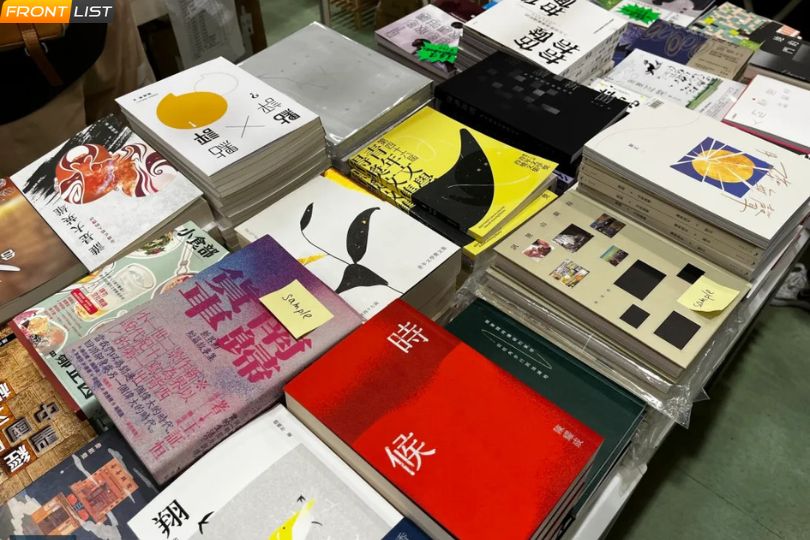Interview with Atul Koul Randev, author of "The Hundred Million Bet" ǀ An explosive thriller about Money Laundering, Mafia and Crime
To be honest, I didn’t build a very detailed storyline before writing. I knew the beginning and some of how I wanted to end the book.on Mar 21, 2023
.jpg)
Atul loves books, and this has been the case ever since his mother, Neeraj, brought him his first Enid Blyton.
He enjoys travelling and is an ardent cricket fan. Atul grew up in India, studied in Paris, and now lives in Oslo, Norway with his wife Anshika.
Frontlist: How did you come up with the storyline of the book "The Hundred Million Bet"? Could you please explain the research process as well?
Atul: The idea first came to me while driving to Italy. I had been studying in Paris and I was traveling with a friend to Milan. On the way, we crossed Casino de Campione, which is built on a small Italian enclave that is surrounded by Switzerland on all sides. This site was the initial inspiration for basing a story around a high-stakes poker game.
That initial stroke was the inspiration for the main premise of the story. I also had an idea about building my characters to be, in a way, modern-day conquerors. If you put Chandragupta Maurya or Julius Caesar-like characters in today’s world, how would they react?
To be honest, I didn’t build a very detailed storyline before writing. I knew the beginning and some of how I wanted to end the book, I broadly knew who the characters were and how they should react, and the conflict that they were facing. I knew the underlying messages that I wanted to communicate through the book. The rest of the story evolved as I wrote.
I get my research inputs in three ways depending on what they add to the story:
- Reading a lot of books and essays to assimilate information and eventually spending some time rationalizing through and building on it. This made the backbone around which the complete story revolved. While writing The hundred million bet, I spent a lot of time reading through the works of Arthur Schopenhauer, Baruch Spinoza, Nietzsche, Epicurus, and Seneca to name a few
- Adding elements that would make the picture more vivid for the reader. For this book, it included playing online poker, visits to exclusive bars (which can be quite a fun way to research), driving the route between Milan and Zurich (mirroring Caesar’s journey in the early parts of the book)
- Trying to plant little herrings that an occasional reader might catch, e.g., in a scene in the book, there is a painting behind the Don. I allude that painting to be The Nativity with St. Francis and St. Lawrence (also known as The Adoration) by the Italian Baroque master Caravaggio. It was painted in 1609 and was stolen on October 16, 1969, in Palermo, Sicily, and has never been recovered.
Frontlist: Which character of the story has evolved the most till the end of the story? Please explain their character arc.
Atul: Without giving too much away. I’d say, Caesar above all. At the beginning of the story, he is a bit of a party boy, his biggest concerns are finding the next bottle of champagne or finding someone to hook up with. As the story progresses, he begins to get a little jaded by the lifestyle and starts questioning the pointlessness of continuously chasing excitement. There is an agitation that follows which is eventually resolved in peace and balance.
Frontlist: The book delineates themes like laundering, crime, and betrayal. How did you balance these dark themes while maintaining a sense of narrative flow?
Atul: All these themes were tools, as opposed to being the central driver of the story. The characters were involved in money laundering or betrayed people or committed crimes. The book was not especially about Money laundering or betrayals or crime.
With that in mind, I built the story around what the character would be most likely to do in the given situation. These people were usually capable of being good. I worked with the principle that, given a choice, they would try to take the morally correct action. However, when pushed into a corner, they were also very capable of doing dark things. In the end, the characters continued to progress in their story one way or another, and I was able to maintain the fast-paced narrative.
Frontlist: How do you think your first-hand experiences and perspectives influenced the book's themes and characters?
Atul: My firsthand travels and experiences definitely played a part in giving some more color and depth to the story. To take an example, on the aforementioned trip to Milan, I ended up spending the evening wining and dining at my friend’s house. I couldn’t speak a word of Italian, and my friend’s parents weren’t very fluent in English. But we communicated through great Lasagna and Grappa. I pay homage to Don and Donna Fichera in the last part of the book as well through some characters that (while not based on them) share their kindness and magnanimity.
The storyline, the commentary, and the character evolution were more a result of careful research, and a lot of exploring, trying something, and rewriting whatever didn’t work.
Frontlist: Would you consider yourself a big fan of poker games in real life? Is there a character from the book that you can relate to?
Atul: I wouldn’t consider myself to be a big fan of Poker. It works well as a theme for the book, but it’s not a big hobby for me personally. Though I do play a recreational game every once in a while.
Maurya is the character that I relate to the most, minus all his illegal dealings of course. We share a similar insatiability towards getting better, though Maurya is relentless in his pursuit whereas I’m not. We are also stoics, with a high threshold for pain, and a move-forward, make the best of what we get, result-oriented attitude.
Frontlist: How does the philosophy of life gambling relate to poker game tricks? Please elucidate.
Atul: Very humbly, I’m not a life coach and have barely got my own life together, so I do not feel accomplished enough to answer this question. :)
In any case, I wouldn’t encourage people to take the same approach to life as to a poker game. But if there is a suggestion that I could put down here, I’d say that, in general, we could do with betting a little bit more on ourselves in pursuit of our big dreams. You can’t only make safe bets in life. Once in a while, you should be open to leaving your job to start a company, or to travel, or bet on a relationship, or whatever may be high stakes for you. You only live once, after all.



.jpg)






.jpg)


.jpg)
.jpg)
.jpg)
.jpg)
.jpg)










Sorry! No comment found for this post.